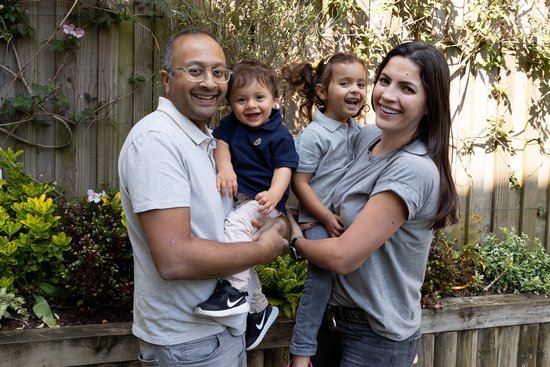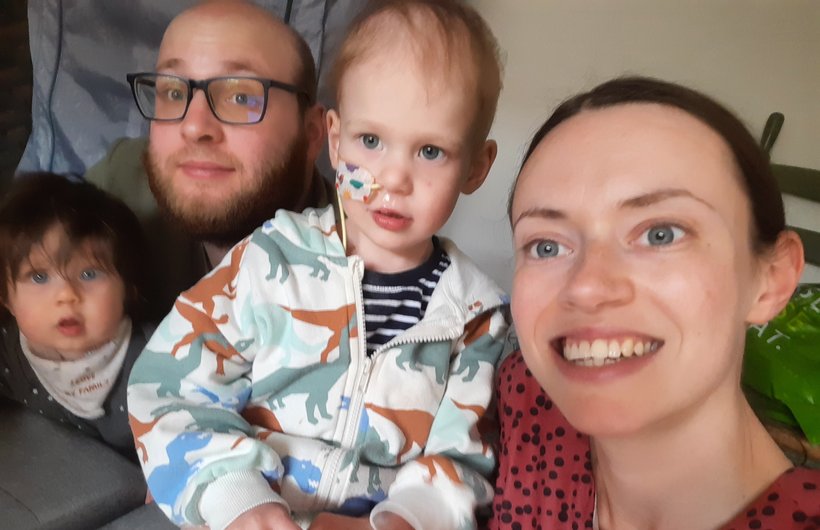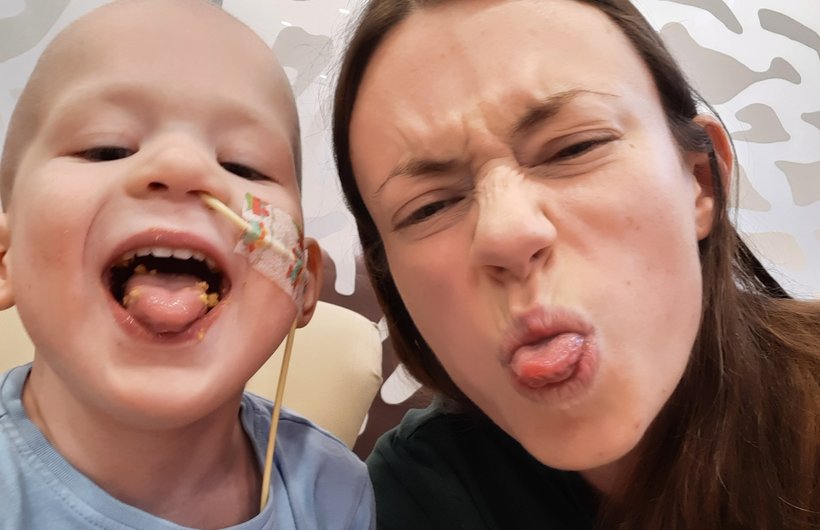Impact of a neuroblastoma diagnosis on the family
The Lichten family
Teddy is a three-year-old from West Sussex who is obsessed with anything to do with trains. He loves going to the train station, playing with his train set and watching Thomas and Friends.
In July 2022, Teddy was diagnosed with high-risk neuroblastoma. Teddy is now in the final stage of gruelling frontline treatment and is undergoing immunotherapy. He should finish his neuroblastoma treatment at the end of the year.
Teddy’s mum, Kat, explains the impact on the family that a neuroblastoma diagnosis, and consequent treatment, can have:
“When Teddy was diagnosed, it felt like our whole world had shattered.
"We had been living a normal family life with Teddy and our youngest child, Rupert, who was only four months old at the time that Teddy was diagnosed. We were going to ‘soft play’ and friends’ houses, and then suddenly we were faced with the fact that there was a 60% chance Teddy could die from this horrific disease.
"We were scared and confused about what the future held. I felt angry at the world and the unfairness of it all."
“Complete survival mode”
"We went into complete survival mode for months after Teddy's diagnosis.
"His induction chemotherapy was absolutely brutal - days of in-patient chemotherapy, hooked up to drips 24 hours a day, with exhaustion, vomiting and pain. Then, when we got home, we seemed to be always going back to the hospital for scans and tests, or when he would inevitably become neutropenic and spike a fever.
"The physical and emotional strain of being at breaking point for months on end is huge."
Family dynamic
"Things were very hard at the beginning as Rupert was just four months old and refused to take a bottle until he was nine months old so my husband had to do every single overnight stay in hospital for the first five months of treatment.
"The boys' relationship suffered from prolonged separation. On the rare days he was home, Teddy would shout and cry at his brother for being in his space and touching his toys because he just wasn't used to being with him."
Support in decision-making
"Solving Kids’ Cancer UK has supported us with many of the decisions we have had to make since Teddy was diagnosed; from whether to enrol on a clinical trial here in the UK, to whether we should defer Teddy's school entry for a year, or whether we should fundraise for treatment abroad.
"Our support worker, Hayley, would be a sounding board for us to bounce our thoughts off, and she would connect us to other families who had been in a similar position, as well as point us to the right places to get information we needed."
Pushing yourself to the limit
"Our advice to other families going through this would be to show yourself a lot of kindness.
"The emotions are really messy and some days you won't feel like you can make it through another day. Somehow you will find the strength to pull yourself together and show up for your child, but you can't forget what a huge toll that takes on you after weeks and months of pushing yourself to the limit. Sometimes you will need to find the space to sit with your feelings and have a big cry, or go and do something that nourishes you like take a walk on the beach or see friends. It's a marathon, not a sprint."
10 families, 1 cancer
For Childhood Cancer Awareness Month, meet 10 different families with 10 different experiences of neuroblastoma.
 Discover more stories
Discover more stories






